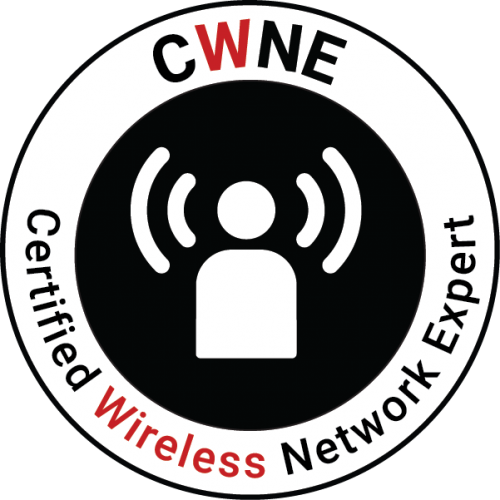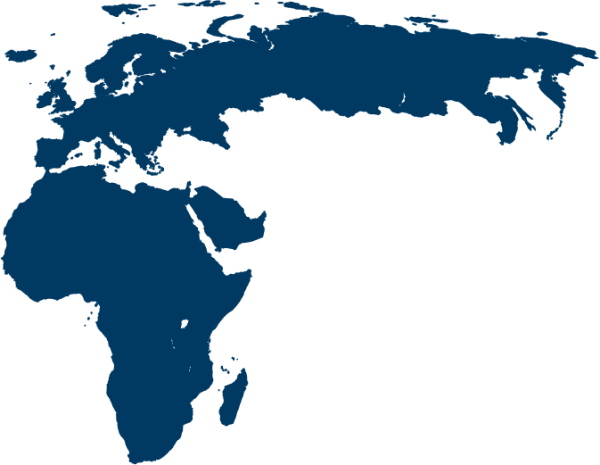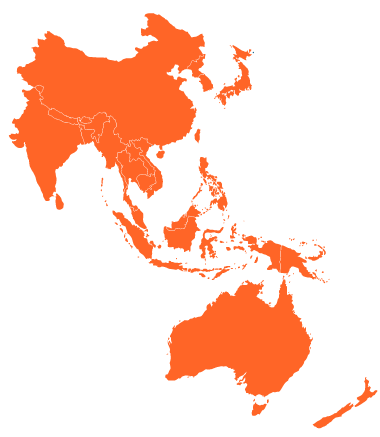


CWNE® - Certified Wireless Network Expert

Experts wanted.
The Certified Wireless Network Expert (CWNE) designation is the final step in the CWNP Wi-Fi Program. By successfully completing the CWNE requirements, you will have demonstrated that you have the most advanced skills available in today's enterprise Wi-Fi market.
The CWNE certification assures that you have mastered all relevant skills to administer, install, configure, troubleshoot, and design wireless network systems. In addition, aspiring CWNE candidates will need to demonstrate deep understanding of protocol analysis, intrusion detection and prevention, performance and QoS analysis, spectrum analysis and management and advanced design.
Candidates interested in applying to become a CWNE have often spent years training and working in the wireless industry have made a significant accomplishments and contributions to the field. The intent of CWNE designation is to certify their advanced level of expertise.
What it takes to become a CWNE:
CWNP has put in place a rigorous application process that requires candidates pass four certification exams, complete commercial wireless LAN deployments, and have three recommendations as well as a peer review by the CWNE Board of Advisors. Additionally, all CWNE certification holders must agree to the CWNE Code of Ethics linked below.
NOTE: Starting January 1, 2021, all CWNE applicants must have the CWISA certification and one external networking certification instead of two external certifications. Additionally, CWNE renewals will require the CWISA, which will also account for 20 of the required 60 CEs for CWNE renewal.
Ready to Apply?
- CWNE Application Requirements (see "Notice on Plagiarism" below)
- CWNE Application (Please note: All publications and essays must be submitted in English.)
- CWNE Endorsement
- CWNE Application Fee
- CWNE Code of Ethics
- Continuing Education Requirements CE Policy The CWNE requires 60 CEs for renewal. The CWISA is required for renewals after January 2021 and will provide 20 CEs as well. After a single CWNE renewal including the CWISA, all future CWNE renewals will automatically renew the CWISA as well as the CWNA, CWAP, CWDP, and CWSP.
Questions:
Send us an email or call 1.866.438.2963
CWNE Count: 534
By geographic region:
| Americas: 365 | EMEA: 121 | APAC: 49 |
 |
 |
 |
Engage with our CWNEs on Twitter
Notice on Plagiarism
CWNP does not allow plagiarized material in any CWNE application content. This includes the essays and publication requirement. Plagiarism is defined by CWNP as:
The explicit or implicit authorship claim of material that is not authored by the claimant.
Explicit plagiarism includes actions such as:
- Copying entire sentences or paragraphs from another work and rewording the content to hide the action
- Copying graphics from another work and altering them in a minor way
Implicit plagiarism includes actions such as:
- Copying entire sentences or paragraphs from another work and failing to cite the source
- Copying graphics from another work and failing to cite the source
In our definition, explicit plagiarism is that which involves attempting to hide the act of plagiarism. Implicit plagiarism is that which simply fails to cite the source. Other definitions exist but it is essential to understand that CWNP defines these two categories of plagiarism. When either category of plagiarism is detected, the CWNE application will be rejected (after thorough evaluation and, in the case of explicit plagiarism, voting of assent by the CWNE Board) and the applicant may reapply after three months (implicit plagiarism) or six months (explicit plagiarism) from the initial application date. However, if a second offense is detected on later attempts, the individual will be permanently banned from applying.
Plagiarism is not allowed in any content submitted to the board for review. It must be original material authored by the applicant. Including content, within the constraints of copyright laws, from other sources is acceptable; however, those sources must be properly cited in relation to the included content. For suggestions on how to cite sources, see "MLA Format and MLA Citations". We do not require MLA format, or any other specific format; however, the author and title of the original source material must be included as well as the date of publication when available. This requirement is true for documents and videos that may be submitted as part of the application. Ensure that all original sources are cited in documents and videos included in your application.
For more information on plagiarism and why it is important that you avoid it in your writting and technology career, see www.Plagiarism.org.
